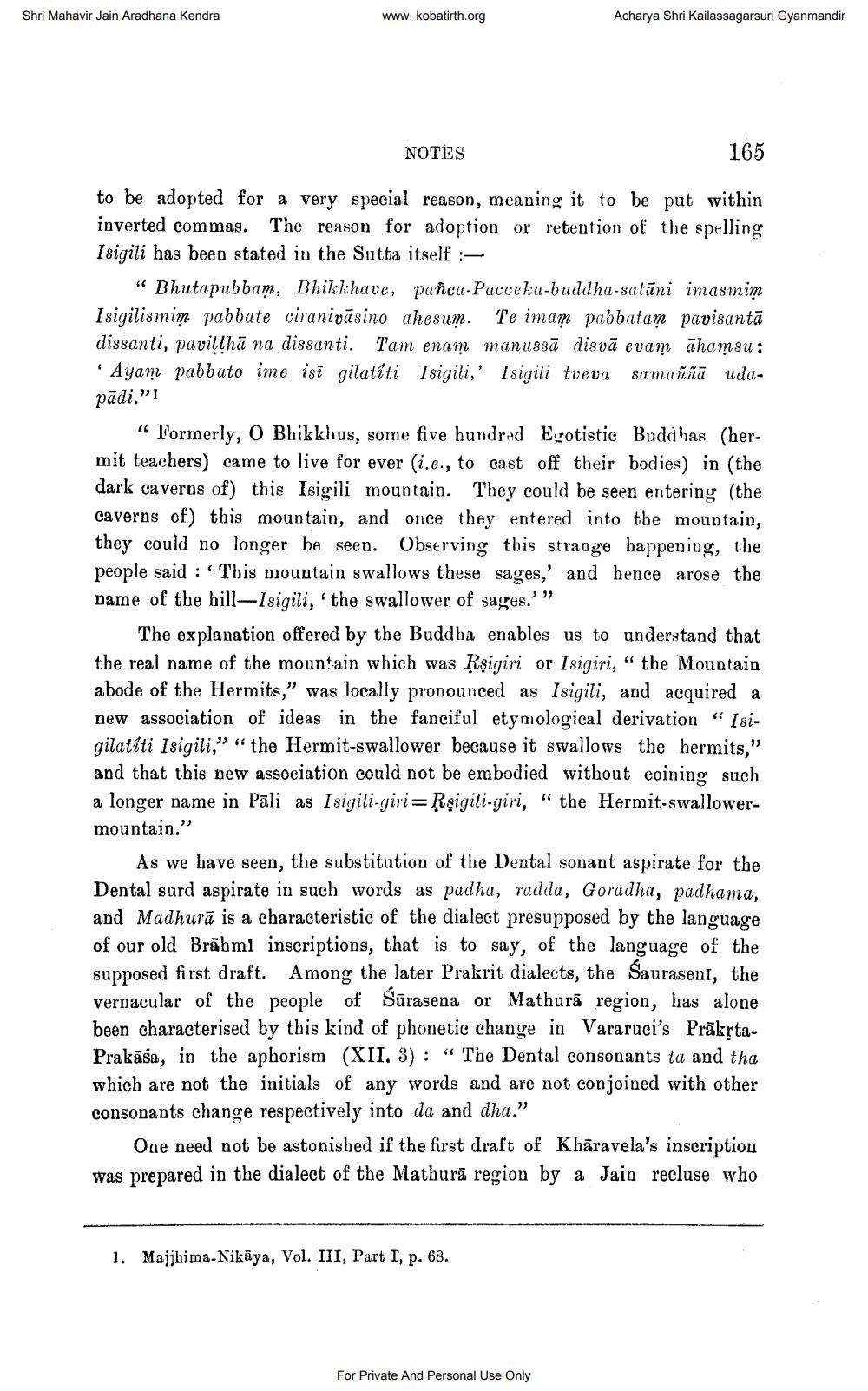________________
Shri Mahavir Jain Aradhana Kendra
www.kobatirth.org
Acharya Shri Kailassagarsuri Gyanmandir
NOTES
165
to be adopted for a very special reason, meaning it to be put within inverted commas. The reason for adoption or retention of the spelling Isigili has been stated in the Sutta itself :
“ Bhutapubbam, Bhilkhave, pañca-Pacceka-buddha-satāni imasmim Isigilismim pabbate ciranivūsino ahesum. Te imam pabbatam pavisantā dissanti, pavitthā na dissanti. Tam enam manussā disvā evam āhamsu:
Ayam pabbato ime isi gilatiti Isigili,' Isigili tveva samañña uda
pādi.”1
"Formerly, O Bhikkhus, some five hundred Eyotistic Buddhas (hermit teachers) came to live for ever i.e., to cast off their bodies) in the dark caverns of) this Isigili mountain. They could be seen entering (the caverns of) this mountain, and once they entered into the mountain, they could no longer be seen. Observing this strange happening, the people said : This mountain swallows these sages,' and hence arose the name of the hill-Isigili, 'the swallower of sages.'”
The explanation offered by the Buddha enables us to understand that the real name of the mountain which was Rşigiri or Isigiri, “ the Mountain abode of the Hermits," was locally pronounced as Isigili, and acquired a new association of ideas in the fanciful etymological derivation “Isigilatiti Isigili," “the Hermit-swallower because it swallows the hermits." and that this new association could not be embodied without coining such a longer name in Pāli as I sigili-giri=Rşigili-giri, “the Hermit-swallowermountain."
As we have seen, the substitution of the Dental sonant aspirate for the Dental surd aspirate in such words as padha, radda, Goradha, padhama, and Madhurā is a characteristic of the dialect presupposed by the language of our old Brābmi inscriptions, that is to say, of the language of the supposed first draft. Among the later Prakrit dialects, the Sauraseni, the vernacular of the people of Śūrasena or Mathurā region, has alone been characterised by this kind of phonetic change in Vararuci's PrākṣtaPrakāśa, in the aphorism (XII. 3) : " The Dental consonants la and tha which are not the initials of any words and are not conjoined with other consonants change respectively into da and dha."
One need not be astonished if the first draft of Khāravela's inscription was prepared in the dialect of the Mathurā region by a Jain recluse who
1, Majjhima - Nikāya, Vol. III, Part I, p. 68.
For Private And Personal Use Only




